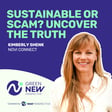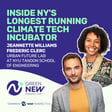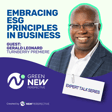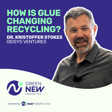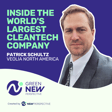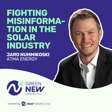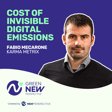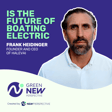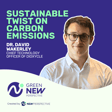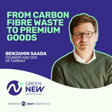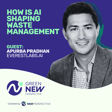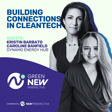
Nano Nuclear Energy: Will Mini Nuclear Plants Power the Future?
Explore nuclear power's role in clean energy with our exclusive look at NANO Nuclear Energy, pioneers in microreactor technology. Despite nuclear's non-renewable tag, its low emissions are crucial for combating climate change. NANO's innovative reactors, "ZEUS" and "ODIN," offer compact, safe, and green solutions. Hear from Jay Yu and James Walker, the minds behind NANO, on how they're shaping a sustainable energy future.
📚 RESOURCES & LINKS
========================
- NANO Nuclear Energy Web: https://nanonuclearenergy.com/
- NANO Nuclear Energy LinkedIn: https://www.linkedin.com/company/nano-nuclear-energy-inc/
- NANO Nuclear Energy Twitter: https://twitter.com/nano_nuclear
- NANO Nuclear Energy Instagram: https://www.instagram.com/nanonuclear/
Guests: Jay Yu, Executive Chairman and President and James Walker, CEO
💬 FOLLOW US ON SOCIAL MEDIA
============================
- Instagram: https://www.instagram.com/greennewperspective/
- Twitter: https://twitter.com/gnperspective
- LinkedIn: https://www.linkedin.com/company/new-perspective-marketing/
- Facebook: https://www.facebook.com/greennewperspective
- TikTok: https://www.tiktok.com/@greennewperspective
🌍 SUSTAINABILITY PODCAST CREATED BY NEW PERSPECTIVE
========================
This podcast is proudly sponsored by New Perspective Marketing, a dynamic growth marketing agency in Boston, MA, celebrating 20 years in business. We help sustainably focused B2B organizations grow their brands and scale up revenue. If you or your organization is looking to grow, visit npws.com for more info.
Host: Dunja Jovanovic
Executive Producer: Marko Bodiroza
Creator: Nathan Harris
#cleantech #sustainability #podcast #nuclear #cleanenergy
